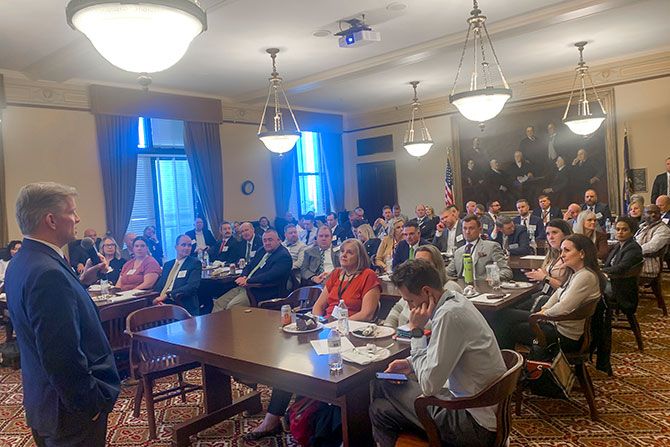After 45 intense days working with the Utah State Legislature, I flew to Washington, D.C., to tackle several tough issues in the nation’s capital. The contrast couldn’t be more glaring!
I could list 100 critical differences that impact the effectiveness of our state and federal governments, including budgets, spending, taxes and regulations. But I will focus on the differing ways they view the banking industry.
The Utah State Legislature understands that the banking industry is connected to every segment of our economy and community. When our community thrives, banks thrive. And when banks are struggling, it’s usually because the community is struggling.
Except, of course, when those struggles are a result of foolish banking laws and regulations. Our state understands that bad laws and regulations don’t just impact banks, they hurt everyone. As a result, we have the best banking laws in the country, our economy is thriving and our communities are succeeding.
And yet Congress and federal regulators are currently mired in a negative spiral of attacking the banking industry. When those actions hurt their constituents and our economy, they blame the banks and adopt more foolish banking laws.
Banks are currently dealing with nearly 5,000 pages of newly proposed regulations out of the beltway, many of which are horribly misguided and will dramatically impact not just the banking industry but people, industries and economies. Will anyone in D.C. take responsibility when this inevitably happens? No, of course not! That’s why the banking industry has finally resorted to our only remaining option of turning to the courts to stop this vicious cycle.
The state, on the other hand, takes a different approach. When they have a problem, they work with the banking industry, not in opposition to it. This year, the governor identified a crisis in attainable housing in Utah, and the Legislature responded by working with us to deploy state reserves through banks to tackle the problem. Yes, this will help the banks that participate, but only as it helps resolve the state’s crisis.
One of the significant reasons why Utah leaders understand this relationship between the success of our communities and our banks has been the visionary leadership of Scott Anderson, CEO of Zions Bank. Throughout his career as Utah’s most prominent banker, he has repeatedly exhibited an astonishing commitment to our community. He has led by example, demonstrating to all that a bank’s success is ultimately driven by the success of the community it serves.
Scott’s involvement in innumerable community initiatives is unprecedented. It would be difficult for me to identify even one significant community initiative in the last 20 years that has not benefited from his counsel and support. And that is not counting all the smaller initiatives he has privately encouraged and supported.
I remember an impromptu one-on-one with Scott that changed my life. He encouraged me to take the lead on some troubling challenges facing Utah’s refugee community. That vision and encouragement led to the creation of a public charter school for refugees that has provided a world-class education for thousands of refugee children. It is one of the most meaningful things I have ever done. Scott and Zions Bank subsequently funded scholarships for many of these amazing students.
We will all miss Scott as CEO of Zions Bank, but if we have learned anything, we know he will remain actively engaged in our community. And the legacy he has left among bankers and Utah policymakers will continue to propel Utah’s success well into the future.
If only we could get Congress and the bank regulators to see that vision!









